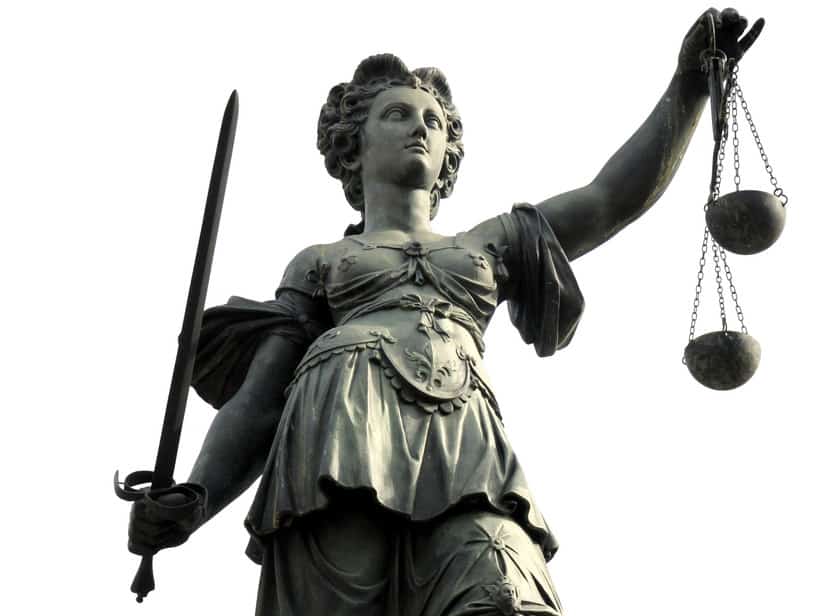
By Hon. T. W. Small (Ret.)
The following excerpts from You Are Not a Lawyer Anymore: A Primer for Those Who Want to Be a Good Judge (2018) appear here with the permission of the author.
There are many definitions of the rule of law. Commissions have studied the meaning of the rule of law. Numerous articles have been written about the rule of law in our country. Presidents have tried to export the rule of law to other countries.
As a judge you should have a clear understanding of just what the rule of law is before taking the bench.
The rule of law in our country began in the 1600s, when persons fled Europe in order to have the freedom to practice whatever religion they chose. The common theme of all religions is to follow the law because that is what good people do. It has been the tradition in our country since the very beginning.
The rule of law is both powerful and fragile. Let me illustrate. As a judge, you have no ability to enforce the decisions you make. In a civil case you must rely on the parties to bring motions to compel or motions to find the other party in contempt when someone violates your order. Even if you order someone to comply with a discovery request, for example, or find someone in contempt, you have no power to enforce those decisions. If you sentence someone to jail, you have no power to make certain that sentence is carried out. Fragile.
One of the most difficult decisions you may face is whether a mother and father are no longer fit to be a mother and father. In a termination of parental rights case, if the state meets its burden of proof, it will be your duty to declare that these individuals are no longer the parents of their children. Incredibly, those individuals will leave your courtroom accepting the fact that they are no longer the mother and father of their children. Powerful.
Thus, the rule of law means that good people follow the law because that is what good people do — unlike in many countries, where they follow the law only out of fear of being caught.
In our country, a judge’s decision is the law. Yet the main reason court decisions are followed is because the rule of law has existed in our country since the beginning. Good people follow the law because that is what good people do.
Therefore, when you order compliance with a discovery request, that order is followed. When you find someone in contempt, that order is followed. Even when you declare individuals to no longer be parents, that order is followed.
Another obvious example of our rule of law can be observed whenever traveling a busy highway. There is often an 8-inch-wide, solid white line of paint dividing one high occupancy vehicle (HOV) lane from the other lanes of travel. Generally speaking, only vehicles with two or more persons may travel in that designated lane. There is no physical barrier that prevents everyone from driving in that lane. There are not enough state troopers to enforce that law if most drivers ignored it. Yet, generally speaking, drivers respect the HOV lane because that is what good people do.
When President Trump ordered immigration restrictions against certain countries and some federal courts issued injunctions preventing the president’s directives from being implemented, a potential constitutional crisis existed. Would the president obey the court orders? After all, in our country, a court’s decision is the law, but the court has no power to enforce it. When President Trump followed the trial judges’ orders and appealed to a higher court, a constitutional crisis was averted.
Consider what would happen if high-ranking government officials refused to obey court orders. Or consider the impact on our rule of law if courts allowed individuals to be attacked because of their religious beliefs when religious freedom lies at the very foundation of our rule of the law.
Unfortunately, during the last 40 years the rule of law has eroded in our country. But there are at least two ways a person in your position can begin to stop, or at least slow, the erosion of our rule of law.
First, you must not only be fair to both sides but maintain the appearance of fairness. Practically speaking, this means you must “sell” your decision to the loser. People are more likely to obey your ruling if: they believe they have been given the opportunity to present all of their arguments; you have heard and understand their position; and your decision, although contrary to their position, is well reasoned and follows the law in the manner that you understand the applicable law.
The appearance of fairness requires you to treat the loser with the same amount of respect you treat the winner and with even more respect than you are treated. In this way, your decisions are more likely to be obeyed.
Consequently, you must listen attentively to both sides’ arguments, regardless of which way you may be leaning, in order to understand their position. That way your decision can acknowledge the loser’s reasoning and respectfully explain why it was not persuasive.
The second way you can slow the erosion of our rule of law is to understand and appreciate your role is that of a judge, not a legislator. Certainly there are gaps in legislation that courts are required to fill. After all, legislation cannot provide for every possible scenario. So you must “fill in” the gap. However, in doing so you must honor the intent of the legislation and follow the appropriate rules of statutory construction.
You will also discover that many laws are ambiguous, sometimes deliberately so in order to obtain enough votes to pass. It is your job to resolve these ambiguities in a manner that at least attempts to honor the perceived intent of the legislature – again, following the appropriate rules of statutory construction.
If you become adept at “selling” your decisions, by not just being fair but appearing to be fair, and understand and appreciate your role as a judge, then you can be confident that your actions will help preserve the rule of law.
As Justice Stephen Breyer stated in his book Making Our Democracy Work: A Judge’s View:
“[P]ublic acceptance is not automatic and cannot be taken for granted. The Court itself must help maintain the public’s trust in the Court, the public’s confidence in the Constitution, and the public’s commitment to the rule of law.”

CHICAGO – The American Bar Association Judicial Division announced recently that TheNational Ju...

The National Judicial College is mourning the loss of former faculty member Judge Duane Harves, who passed ...

As the world manages an evolving natural environment, The National Judicial College announced today that it...

Do’s Manage your cases systematically Devise a system that works for you and your organizational...

After 22 years of teaching judges, Tennessee Senior Judge Don Ash will retire as a regular faculty member a...
